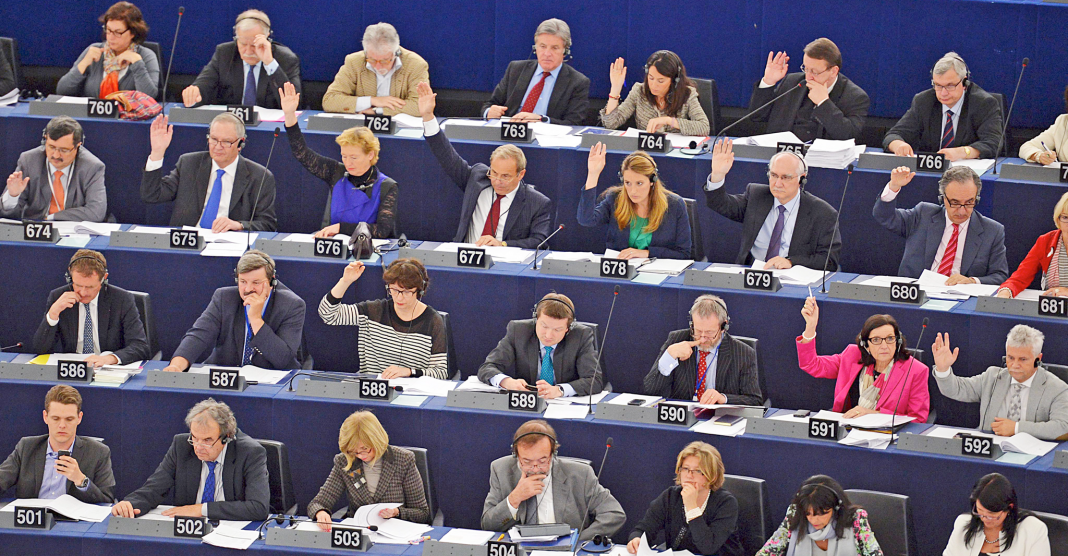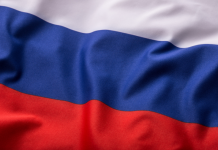‘The ghost of the external enemy’ returns yet again in Serbia. This time, the narrative is being used to undermine the resolution ratified by the European Parliament. The European Parliament urged the European Commission to launch an international investigation into the December elections in Serbia, which once again declared President Aleksandar Vučić’s ruling SNS party as the winner. However, the latter and all political figures in power in Serbia find fault either with the opposition or with ‘Western enemies’ who ‘seek to economically damage Serbia’. Furthermore, Prime Minister Ana Brnabić referred to the European Parliament’s resolution as ‘pressure for Serbia to recognize Kosovo,’ despite this not being mentioned in any line of the resolution itself.
Jona Plumbi
‘We engage in discussions with all parties because Serbia is on the European path, although they are vehemently resisting sanctions, as they don’t want Serbia to become strong, particularly economically. If I were to win the Nobel Prize just to recognize Kosovo and if I were to impose sanctions against Russia, I would be the greatest world leader, a European visionary… But my vision is the future of Serbia. My focus is on Serbia; I am not a candidate for Commissioner in the EU‘ declared Aleksandar Vučić.
This is how the Serbian President commented on the resolution adopted in the European Parliament with 461 votes in favor, 53 against, and 43 abstentions, which calls for an international investigation into the recent elections in Serbia. The statement aligns with the Serbian narrative, which adamantly rejects the fact that international observers, including the OSCE ODIHR and other local actors in Serbia, have documented violations of freedom and fairness in the December 2023 electoral process. In their statements, both before and after the EU resolution’s approval, Vučić, Brnabić, and other political actors in Serbia find every possible (and impossible) excuse just to avoid facing confronting themselves in the mirror.
The Serbian narrative in Albanian media
During an interview with Serbian television Pink TV, later translated into Albanian by the pro-Serbian portal ‘Kosovo-Online,’ Vučić commented on the European Parliament Resolution, stating that resolutions ‘come and go’, while the shame of the opposition will endure indefinitely.
‘The resolutions may come and go, but their shame will endure indefinitely, as such actions against your country are unacceptable. When we were in the opposition, we haven’t conducted ourselves in such a way. This is an expression of the profound weakness of the former regime parties, which are trying to be manipulated by external forces like puppets, who bring them into power because their money holds more importance than the future of the country, stated Vučić.
According to him, the motion for the European Parliament resolution sought by the opposition advocates for a Serbia without Kosovo.
‘They have not done anything honorable or beneficial for our nation. They do not love Serbia. They stand for Serbia without Kosovo, for a Serbia that will serve foreign interests. I take pride in preventing those who wish to colonize Serbia‘ he said.
This depreciating narrative towards the European Parliament didn’t begin solely after the approval of the aforementioned resolution. Vučić had prepared the terrain earlier.
‘They will always make recommendations against Serbia; we will express our gratitude and continue our journey‘ – Vučić stated from Skopje after the meeting of Western Balkans leaders with the European Union.
Ana Brnabić, Serbia’s Prime Minister, also addressed the news with a similar tone. According to her, this resolution is not about the elections in Serbia, but about the recognition of Kosovo.
‘The EP resolution continues the pressure on Serbia, it has nothing to do with the elections at all. The resolution is a means of pressure and punishment for two fundamental reasons. Firstly, as they claim, we are undermining the constitutionality of the so-called Kosovo, and secondly, why does the European Parliament complain, and why did Aleksandar Vučić insist and decide that Serbia should vote against the so-called membership of Kosovo in the Council of Europe, which was also criticized in the European Parliament resolution in October 2023,’ Ana Brnabić explained for TV Pink.
What happened
The Serbian Progressive Party (SPP), in power since 2012, won 48% of the votes in the country’s parliamentary elections on December 17th. However, the voting process was marred by irregularities and allegations of fraud. Reports have emerged of attacks against election observers, instances of vote-buying, ballot box stuffing, and irregular transportation of citizens – including ministers – from the Bosniak entity of Republika Srpska to Belgrade to vote for the ruling party throughout election day.
Following the conclusion of the electoral process in Serbia, the OSCE ODIHR election observation mission declared that ‘despite the early parliamentary elections in Serbia offering voters a choice between political alternatives and respecting freedoms of expression and assembly, overall, the electoral process was undermined by voter pressure and the decisive involvement of the President, along with systematic advantages for the ruling party’.
No EU leader congratulated President Aleksandar Vučić and the SPP on their victory. Except for one: Hungarian Prime Minister Viktor Orbán.
In contrast, the EU, USA, and Germany emphasized their concerns regarding allegations of fraud and urged Serbian authorities to investigate the reported irregularities. The Socialist Group in the European Parliament and MEPs Viola von Cramon and Klemen Groselj, who took part in the European Parliament Election Observation Mission, also shared similar concerns. The MEP von Cramon even offered to mediate a party dialogue between the SPP and the opposition on behalf of the European Parliament.
What does the Resolution say
The European Parliament resolution calls on the EU Commission to initiate an international investigation into the December elections process in Serbia.
Kosovo is not mentioned at all in this resolution.
The text, approved by an overwhelming majority in Strasbourg, includes a request for an international investigation into the elections in Serbia, following the model applied in North Macedonia. If Serbian authorities fail to implement the recommendations to improve the electoral process or if they are found to have participated in electoral fraud, Serbia faces the possibility of EU funding suspension.
The resolution points out that the general campaign in Serbia was characterized by extreme polarization, aggressive rhetoric, personal denigration, and verbal abuse. The pressure on public sector employees, misuse of public resources, and voter inducement schemes raised concerns about voters’ ability to cast their ballots freely. Furthermore, media outlets sponsored by Russia such as Sputnik Serbia and Russia Today Balkan actively contributed to the dissemination of misinformation, primarily targeting opposition candidates.
The resolution continues to highlight the prominent role President Vučić played in the campaign during these elections, despite not being a candidate, as well as the fact that the Serbian civil society organization CRTA assessed inaccuracies in the voter registry, comprising at least 30,000 voters, as part of an unlawful ‘electoral engineering’ strategy aimed at influencing election results and distorting the voters’ will.
The European Parliament highlights with serious concern that ample evidence collected by international and domestic observers suggests activities before and during election day that may have altered the election outcome and critically influenced the results of the Belgrade elections, notably undermining the legitimacy of the parliamentary elections;
The European Parliament calls for an independent international investigation by experts and reputable international legal institutions into the election irregularities. Additionally, it requests the European Commission to launch an initiative to send a mission of experts to Serbia to assess the situation regarding the recent elections and the developments thereafter.
Paragraph ‘S’ of the European Parliament Resolution in particular dissects the Serbian narrative as a branch of the Russian one.
‘The Serbian authorities deny any irregularities. The Serbian President and Kremlin-controlled media have alleged that other countries intervened in the Serbian electoral process in brutal ways, yet they have not presented verified evidence to support these claims. As Prime Minister Brnabić publicly thanked Russian intelligence services for providing information about planned opposition activities, the Kremlin condemned public protests against Serbia’s general elections as Western attempts to overthrow the government and orchestrate another ‘Maidan-style coup‘ – European Parliament Resolution on the Serbian elections, February 8, 2024.
Conclusion
After alleging Western involvement in inciting post-election anti-government protests in Serbia, President Vučić has utilized a similar ‘strategy’ to discredit and downplay concerns about manipulated elections, as formalized in the European Parliament resolution of February 8, 2024.
All against Vučić’ – Strategic Move or Paranoia of the Serbian President?
President Vučić, Prime Minister Brnabić, and other officials of the ruling party have labeled the resolution at times as a ‘product of manipulated opposition influenced by third countries’ and at other times as ‘pressure on Serbia to recognize Kosovo’.
The European Parliament resolution itself refutes the statements of Serbian officials when it ‘condemns orchestrated attacks by Serbian officials against election observers, including Members of the European Parliament, and calls for a return to respectful and constructive discourse as well as ‘calls on the Serbian authorities to take all necessary steps to prevent any further disinformation campaigns against election observers‘, who have documented violations of laws and electoral standards.










